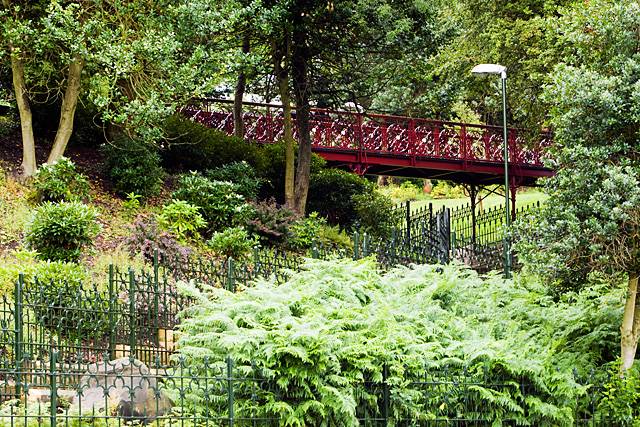Should smoking be banned in UK parks?
Date published: 25 February 2015

Broadfield Park
Is a smoking ban in UK parks and outdoor spaces a good idea? Experts debate the issue in The BMJ today (Wednesday 25 February).
Lord Ara Darzi and Oliver Keown at the Institute of Global Health Innovation want a ban to help smokers quit and to protect children from seeing people lighting up.
Extending anti-smoking legislation in the UK to encompass a ban in parks and squares “is an opportunity to celebrate the great beacon of healthy living, clean air, and physical activity our green spaces are designed for,” they write. “And, crucially, it is an opportunity to support our population - young and old - to make healthier lifestyle choices easier.”
The evidence remains clear: smoking tobacco is still the largest contributor to ill health and preventable mortality in the world today.
In England, despite the number of smokers having halved in the past 30 years through effective public health interventions, it still prematurely kills more than 79,000 people a year, contributes to the growing prevalence of non-communicable disease, costs the NHS an estimated £2.7billion a year in associated health care expenditure, and attracts the highest rates of uptake among the country’s young and adolescent populations.
The existing UK ban has been “a public health triumph,” they say. Banning it in public parks and squares is “a logical progression.”
They also highlight the importance of societal “norms” as a powerful influence on decision making. “By reducing the geographical footprint where smoking is sanctioned and by limiting exposure to the practice itself, we can redress the observed norms against which park users and young people compare their personal smoking habits,” they write.
They cite evidence from around the world, where smoking bans have been successfully introduced, and say “expanding smoking prohibition to broader public spaces will undoubtedly have a positive effect on our population’s health.”
But Professor Simon Chapman at the University of Sydney says there is no scientific justification for such a draconian attack on basic freedoms.
He points out that no studies have looked at exposure in parks or on beaches - “almost certainly because researchers with any knowledge of airborne exposures would appreciate that such exposures would be so small, dissipated, and transitory as to be of no concern.”
He argues that outdoor bans based on communities’ amenity preferences “should not be dressed up in the language of public health” and says the line of shielding children from the sight of smoking “is pernicious and is redolent of totalitarian regimes in their penchants for repressing various liberties, communication, and cultural expression not sanctioned by the state.”
Coercing people to stop smoking in settings where it poses negligible risk to others is openly paternalistic, he writes. If it is fine to tell smokers that they cannot be seen to smoke anywhere in public, why not extend the same reasoning to drinkers or to people wolfing down supersized orders in fast food outlets?
He points out that, in Australia, daily smoking prevalence is now only 12.8% and is highly likely to keep falling. This, he says, has been achieved without the unethical coercion of smokers.
“Political support for dissuasive, but not coercive, policies such as plain packaging and high tobacco tax rates has been bipartisan, from the left and right of politics. This would almost certainly not have happened if we had abandoned the ethical concerns that some are demanding,” he concludes.
Do you have a story for us?
Let us know by emailing news@rochdaleonline.co.uk
All contact will be treated in confidence.
Most Viewed News Stories
- 1Middleton school hails another outstanding inspection result
- 2Former councillor and hospital campaigner Jean Ashworth has died
- 3Drugs and cash seized during morning raids at suspected stash houses
- 4No trams between Oldham and Rochdale this Sunday
- 5Northern Healthcare opens supported living service in former Rochdale hotel
To contact the Rochdale Online news desk, email news@rochdaleonline.co.uk or visit our news submission page.
To get the latest news on your desktop or mobile, follow Rochdale Online on Twitter and Facebook.


